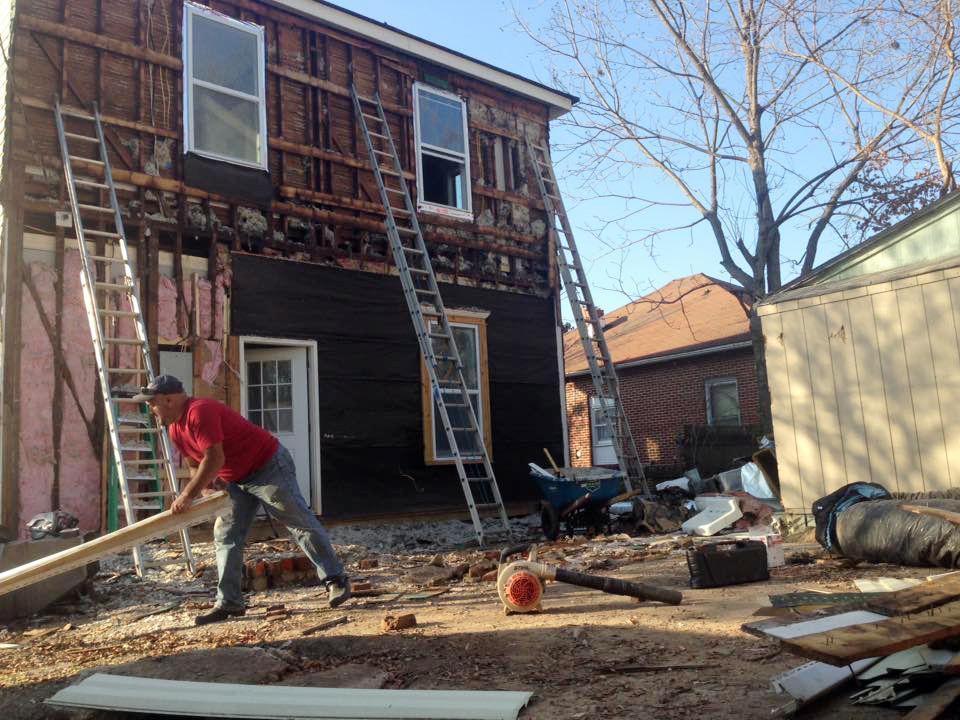
Contributed from The Light House Project
When Deah Barakat’s parents inherited the 104-year-old house in downtown Raleigh their son had purchased as an investment property, they knew they wanted to use the space to further Deah’s vision for the community.
Deah’s family bounced around ideas; his father suggested creating a shelter for battered women or something to that effect. While sifting through possibilities, Deah’s mother sent her son, Farris Barakat, a screenshot of one of his younger brother’s old tweets.
“I have a dream one day, to have a unified and structured community. Have a voice in our society and support the youth with their projects,” the tweet stated.
And thus, the Light House Project was born, earning its name from the man who inspired the project through his spirit for philanthropy and community outreach.
“Deah, translating from Arabic, means light. So we decided to name it the Light House — two words,” said Barakat, Deah’s older brother and the executive director of the Light House Project.
On Feb. 10, 2015, Deah, his wife Yusor Abu-Salha and her sister Razan Abu-Salha were shot and killed in their home by a neighbor. The FBI is still investigating the shooting as a hate crime.
Since their deaths, “Our Three Winners” have inspired an outpouring of community support and conversations about Islamophobia in the U.S.
Hoda Abrahim, a volunteer for the Light House Project, said along with providing resources, the Light House Project is a way to show the community what it means to be Muslim in the United States.
“Basically the idea is to start changing the Muslim American Narrative,” Abrahim said. “Muslims in the U.S. kind of get a bad rap. There is Islamophobia and a lot of hate rhetoric that goes on, so we wanted this to be something that shows we are active community members and want to take part in bettering this world.”
Although the house, located at 202 N. Tarboro Street in Raleigh, is still undergoing renovations and is not yet fully operational, those involved with the project say the house will serve as a resource center for Muslim youth.
Barakat said the house will serve as a space for several incubator programs to operate in, which all deal with a core competency such as education, outreach or service.
Some of the incubator projects described on the project’s website includes an afterschool program for high school students centered on the Muslim Inter-Scholastic Tournament competition as well as an initiative to help young professionals in the Triangle through programming and opportunities for companionship.
The Raleigh Chapter of United Muslim Relief, an organization Deah, Yusor and Razan used to volunteer for, will also use the space to coordinate projects throughout the Triangle.
Although the Light House is already being used as a venue for events, including a fundraising gala and silent art auction Feb. 6, the space has not been finished yet. Barakat and a team of volunteers and contractors were working on renovating the front of the house all the way up until minutes before the event.
“We don’t know exactly when it will be finished,” said Zainab Baloch, a volunteer at the project who has been working with it since its creation. “When we started, they were saying it was going to take two weeks, and that was in July.”
When asked how long it would take for the house to be completely finished, Barakat laughed and joked about the ever-changing timeline of renovating the house.
“I keep telling people the house is going to take two weeks, and I’ve been doing that for months,” Barakat said. “At first we were just going to paint it, but we keep changing what we are going to do.”
When finished, the bottom floor of the house will have a room for studying and collaborating as well as a living room, kitchen and a prayer room that also functions as a multipurpose room, according to the project’s website. The top floor will be used for more administrative purposes and have a large meeting room and office spaces.
Across the street from the Light House is a community center and a teen center owned by the City of Raleigh, which Barakat said gives the house even more potential to be a resource for Raleigh youth.
Barakat said he hopes to connect with people on a personal level and honor his brother through this project.
“It was four months after the murder when I was reflecting on what more I could be doing,” Barakat said. “I knew I should focus on the fact that I can really connect with people through this story on a personal level and help them understand Muslims and Islam.”
Once the house is finished, Barakat said anyone interested in learning more about Muslims and Islam should just stop by the house.
“One of the cool parts about having a physical house is that people who really are curious to learn about Islam can come to the space and do so,” Barakat said.
For more updates on construction and information about projects and future events, visit the project’s website at www.projectlight.house.